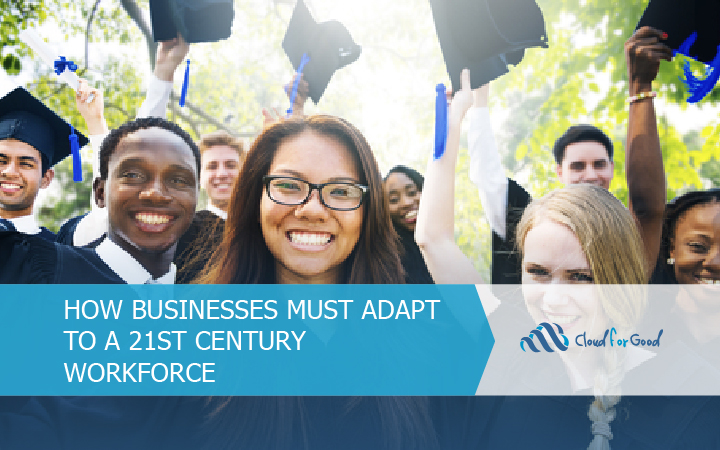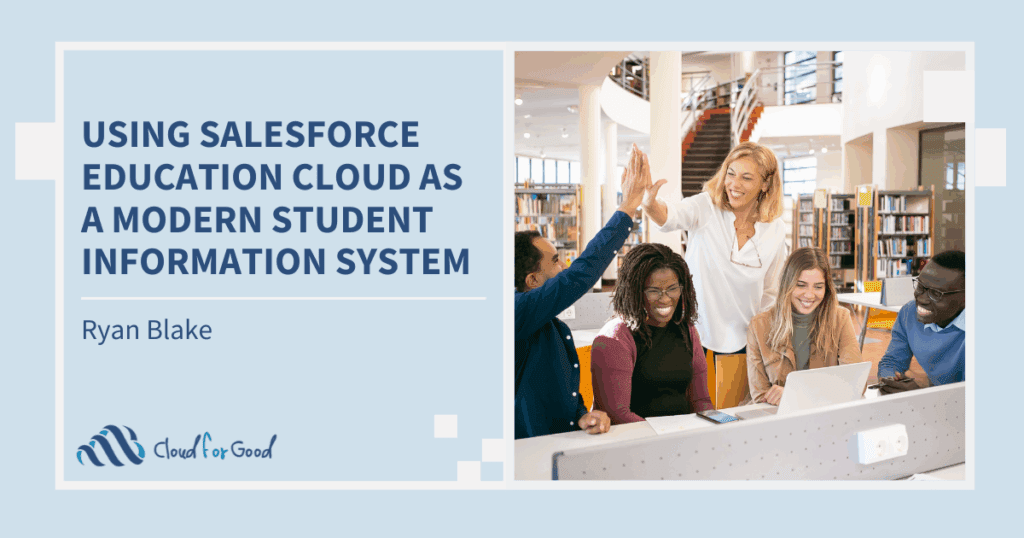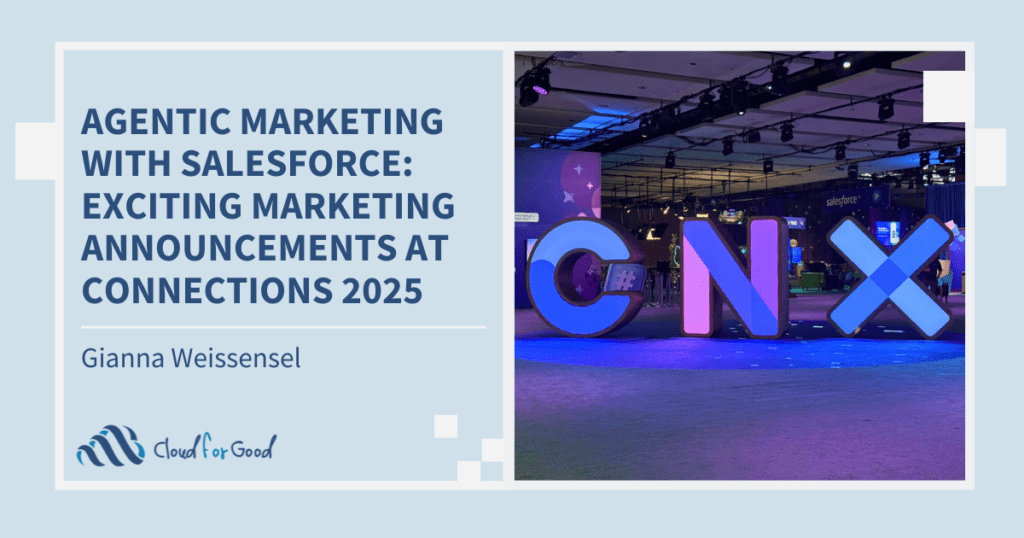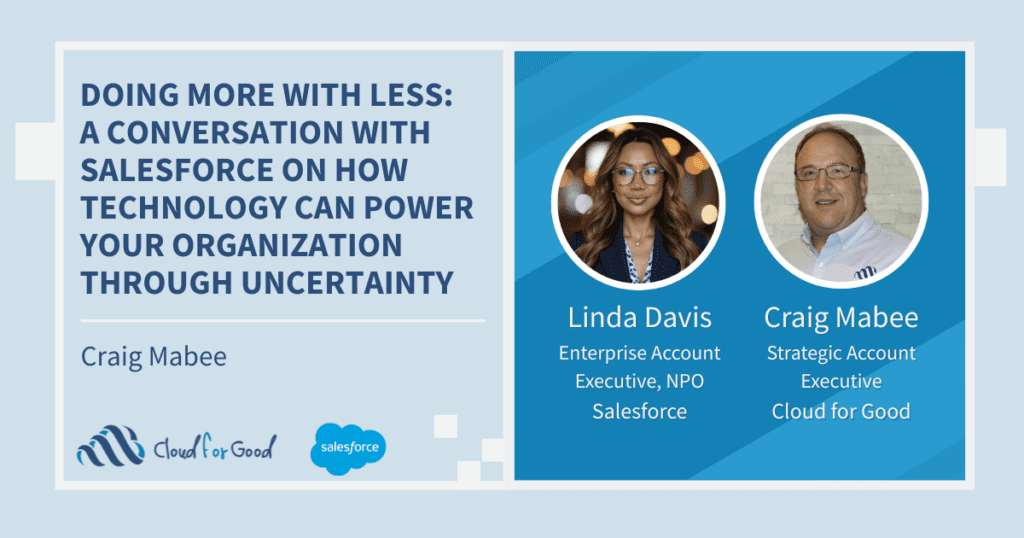This post was originally published on the Salesforce blog.
From self-driving cars to personalized marketing journeys, the world is changing and it is changing fast. In many industries the most highly demanded positions did not exist ten or even five years ago. With such a rapidly evolving employment landscape, the ability to anticipate and prepare for future requirements is increasingly critical to fully seize the opportunities presented by these trends—and to mitigate undesirable outcomes.
For organizations to capitalize on new opportunities, they will need to understand that talent development is critical to achieve growth and stronger results. Businesses can no longer be passive consumers of ready-made human capital. Businesses will need to be flexible, encourage learning and create meaning.
Flexibility
When I started Cloud for Good, a consultancy that helps nonprofit organizations and higher education institutions create more value with Salesforce, from Memphis, Tennessee (I have since moved to Asheville, North Carolina), many told me that it would be impossible for us to operate and win business because the talent and clients were not in Tennessee. While they were right about the lack of clients and talent in Memphis, they were wrong in their assumption that location is that important to running a successful business in the 21st Century.
As physical and organizational boundaries are becoming increasingly blurred, businesses need to become significantly more agile in the way they think about managing people’s work and about the workforce as a whole. Work is not a location, it is what people do.
Technology is allowing businesses to increasingly connect and collaborate with remote workers, freelancers, and independent professionals, but technology is not enough. Businesses need to understand that in order to be successful they must invest in their processes, and more importantly, in their people.
Lifelong Learning
I don’t believe that simply reforming current education systems to better equip today’s students to meet future skills requirements—as worthwhile and daunting as that task is—is going to be enough to remain competitive as a nation. Businesses (together with governments) have an opportunity to train and retrain individuals who have time, motivation and passion, on the skills and competencies needed to compete in the future working environment. Their jobs are going to stay but the skills required to complete them are going to continuously change.
Furthermore, the next generation of workers, Generation Z, has been exposed to data, a lot of data, from day one. They are growing up learning through massive online courses and other online tools as well as traditional educational patterns. They are accustomed to sifting through the wealth of information provided by the Internet. They will expect their future employers to be transparent about growth opportunities, and because of the increased ability to work remotely, will be able to shift to employers who better meet their needs. Just because they live in small-town Iowa or West Virginia doesn’t mean they will be forced to either work for the local employer or uproot their lives and move to a new place.
On-Demand learning will be as critical to the growth of this new facet of the economy as the ability to work remotely. Salesforce’s Trailhead platform is a great example of an investment in on-demand learning and development is helping grow the “Salesforce economy.” The introduction of Trailhead allows Salesforce to reach out to potential admins, consultants and developers who do not possess the platform knowledge, and at the same offering ongoing professional development to existing Salesforce users. Employers who can provide on-demand career development will become employers of choice, and winning the talent war will mean winning in business.
Greater Meaning
Both millennials and Gen Z want work with purpose and they want their workplace to be aligned with their values. In fact, 74% of millennial job-seekers told LinkedIn they wanted to know that their work matters. At Cloud for Good, where almost 60% of the Goodies are millennials (including myself, the CEO), we like to say that we pay them for their passion. That passion could be Salesforce and/or helping nonprofit organizations create positive changes in the world. To make sure that our values are aligned, we share with every new potential new hire our values, mission and information about organizations that we work with and those we do not. Salary, benefit and overall compensation are important to your future employees, but they also believe that business should be measured by more than just their profits.
As we begin to consider proactive adaptation to the new talent landscape, we need to manage this skill and expectation disruption as an opportunity to be more competitive. The HR department needs to leverage data and analytics to find industry-specific talent trends and gaps. It should become part of the organizational strategy to capitalize on the upcoming transformational changes.
You may also be interested in reading:





